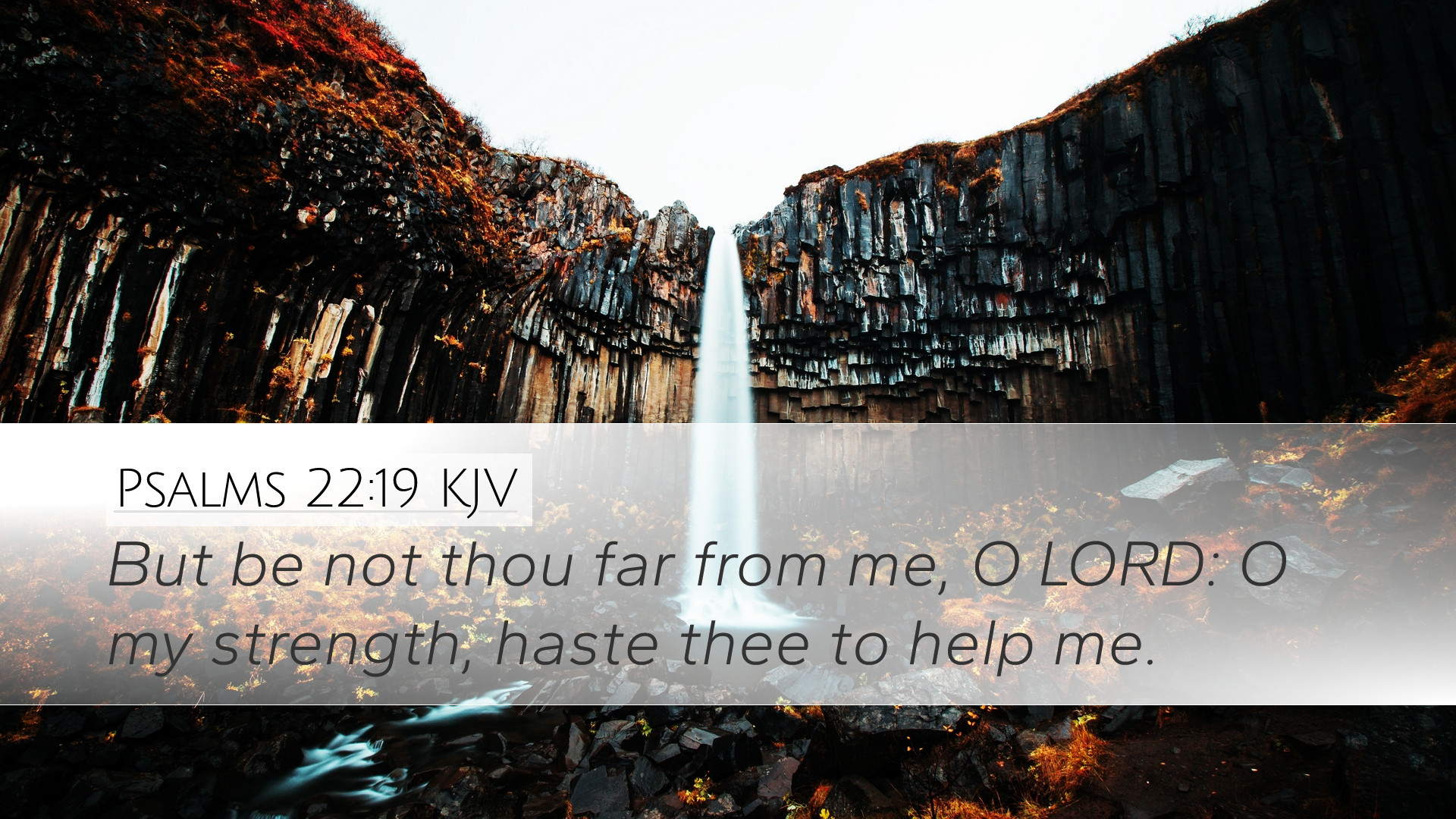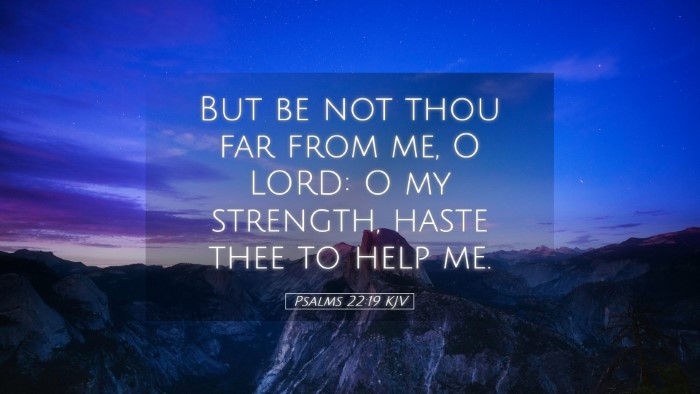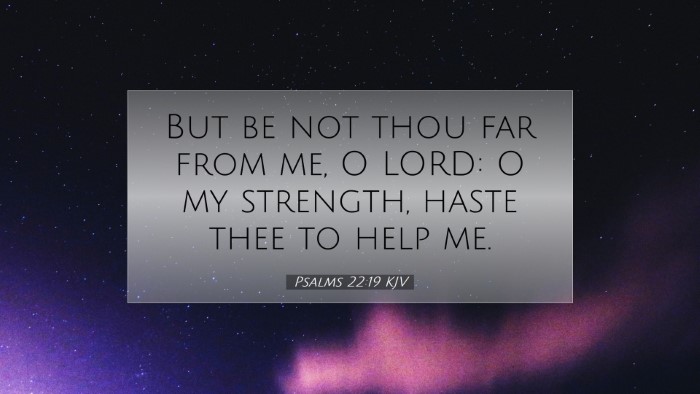Commentary on Psalms 22:19
Psalms 22:19 states, "But be not thou far from me, O LORD: O my strength, haste thee to help me." This verse reflects the deep longing for God’s presence during times of distress. The psalmist, traditionally understood to be David, expresses a heartfelt plea, displaying both vulnerability and trust in the Divine.
Contextual Overview
The Psalm is categorized as a lament, encompassing profound despair but ultimately leading to a reaffirmation of faith. It serves as a poignant articulation of anguish and a call for divine intervention. The initial verses present a scene of deep suffering, yet as the psalm progresses, a shift towards hope and praise becomes apparent. Understanding this transition is critical for a thorough interpretation of Psalms 22.
Theological Insights
-
Divine Presence:
The psalmist’s cry for God to not be far away emphasizes the relation between human suffering and the perceived absence of God. Matthew Henry highlights that in troubled times, it is natural for believers to feel abandoned, yet such feelings must be countered with a reminder of God’s steadfastness. The prayer underscores an intimate relationship with God, wherein the psalmist calls out, not out of doubt, but out of deep reliance on God as his strength.
-
Call for Help:
The urgency in the plea, "haste thee to help me," signifies the immediacy of the situation and the intense need for Providence. Adam Clarke elaborates on this by asserting that the appeal for quick assistance shows a recognition of God's power and readiness to act on behalf of His people.
-
Human Weakness and Divine Strength:
The contrast between the psalmist's weakness and God's strength serves as a profound theological statement. The term "my strength" denotes a reliance on divine aid rather than self-sufficiency. Albert Barnes notes that the petitions reflect a deep awareness of personal limitations and a trusting submission to God's power, which is crucial for any believer undergoing trials.
Lament and Hope
This passage encapsulates the essence of lamentation in the Psalms, where sorrow is met with the expectation of hope. Craig C. Broyles in his commentary emphasizes that laments often transition from cries of despair to affirmations of faith, showing that the act of prayer itself is a vital component of the believer’s relationship with God.
Structuring the Lament
-
Expression of Distress:
The preceding verses detail the psalmist's outcry, encapsulating feelings of abandonment and despair.
-
Invocation of Divine Aid:
The present verse shifts to a direct plea for assistance, showcasing a deep yearning for God’s immediate presence.
-
Confidence in Deliverance:
Following this cry, the Psalm moves toward affirmations of trust in God’s faithfulness and eventual deliverance, which serves as a theological anchor for believers amidst trials.
Pastoral Applications
In a pastoral context, this verse is immensely applicable. It provides a template for understanding and aiding congregants in moments of distress. Pastors may draw upon the emotions expressed in this psalm to validate the struggles of their parishioners and guide them toward trust in God's unfailing support. The assurance of God's nearness can bring immense comfort to those facing adversities.
Encouragement for Believers
For students and scholars, this verse encourages an exploration of the complexities of faith during hardship. It evokes critical discussions about the nature of God's presence and how it is perceived amid suffering. Engaging with this Psalm can deepen one's understanding of how the biblical tradition navigates the tension between despair and hope.
The Role of Prayer
This verse also accentuates the importance of prayer in the life of a believer. The act of pleading for God’s intervention not only expresses dependence on the Divine but also serves as a means of fostering a deeper relationship with Him. Prayers of lament, like those seen in Psalms, are a vital aspect of the spiritual journey, enabling believers to voice their concerns and receive divine comfort.
Conclusion
Psalms 22:19 resonates with all aspects of the human experience, particularly in times of suffering. The poignant plea for God to draw near reflects the universal human desire for divine support. As narrated by revered commentators, this verse is a reminder of the balance between lament and expectation of hope, urging believers to confront their despair with the promise of God’s presence and strength. For pastors, students, and theologians alike, this verse encapsulates the enduring reliance on God, making it a pivotal text in understanding the depth of faith in the midst of adversity.


